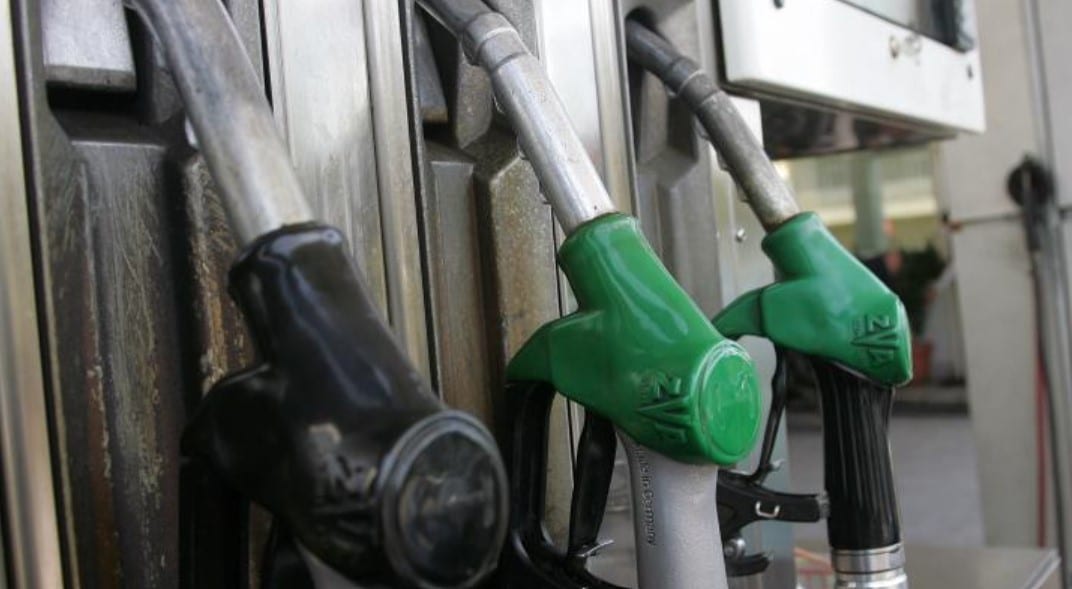By Antigoni Pitta and Elias Hazou
President Nikos Christodoulides on Thursday warned of large increases in the prices of motor fuel at the end of the month, following the end of reduced consumption tax on fuels, combined with the imposition of a green tax in the exact same period.
Reductions in consumption tax end at the end of March, which is expected to raise the prices of motor fuels, gasoline and diesel by 8.3 cents per litre, with the possibility of 5 more cents being added as a result of the green tax.
According to the draft law for the imposition of a carbon tax on fuel, which was put to public consultation on Wednesday, the finance ministry’s aim is for the proposed green tax on fuel to come into force from April 1.
This date is the government’s deadline to introduce a carbon tax on fuel based on the Recovery and Resilience Plan, which will be difficult as the bill was only submitted for consultation a day ago and will be completed on the 19th of the month, leaving only about ten days for the House and the Cabinet to approve it.
If this is achieved on time, fuel prices are expected to go up by at least 14-15 cents per litre, with gas station owners publicly warning of further potential increases due to the receipt of more expensive fuel loads.
On Wednesday afternoon, the average Cyprus price of 95 octane gasoline amounted to €1.38 per litre, and of diesel to €1.51 per litre.
Despite the anticipated increases, prices are not expected to surpass the record set in July 2022, when they peaked at €1.83 per litre.
However, a new record in terms of the price of gasoline and motor fuels in general is considered a given in the next few years, as the green tax will increase yearly.
According to the Carbon Tax on Energy Products Act 2023 which was put to public consultation on Wednesday, the carbon tax on motor fuels will increase from 5 cents this year to 7 cents per litre in 2025 and to 10 cents in 2026.
It is predicted to reach 25 cents by 2033, on which VAT will also be imposed. A carbon tax under the same bill would also be levied on manufacturing fuels and on polluting industries, rising to 7 cents per litre this year and rising annually until 2033.
Meantime Finance Minister Makis Keravnos sought to head off the criticism coming from political parties and consumer advocacy groups.
The economy czar asserted that the carbon tax will be “very small” but the benefit to people huge.
And he promised that the offsets would be implemented at the same time as the new tax.
“The surcharge of the green tax will be a very small part of Cyprus’ tax revenue. Just a few cents, which will be returned in various ways to households, businesses, and society in general”, Keravnos told the state broadcaster.
“It’s not as if the finance ministry has issued an amber alert for the green tax; rather, we’ve issued a green invitation to all members of the public, as right now we’re still in the consultation stage.”
Nothing has been finalised yet, he stressed.
“For instance, the tax on motor fuel…will bring in total revenues of €52 million – €19 million from businesses and €33 million from households. But all the money will be refunded to people in different ways.”
Later in the day, the energy minister likewise hinted the government may have some wiggle room in terms of the specific green tax to be levied on motor fuels.
George Papanastasiou made the comments coming out of a meeting with Akel leader Stefanos Stefanou.
Taking questions from journalists, Papanastasiou spoke of an ongoing “assessment” regarding the commitments Cyprus has undertaken towards the European Commission.
He said the decision was up to the finance ministry, which by month’s end will decide the tax rate to be imposed as well as the offsets.
For his part, Stefanou urged the government to extend the current relief measures – such as the reduced consumption tax on fuels – beyond the end of March.
Also, the government must hold off on rolling out the green tax.
“Why should we [Cyprus] be more royalist than the king?” remarked Stefanou, suggesting Nicosia is going beyond what Brussels demands when it comes to the green tax.
The Akel boss also complained that the relevant legislation is being discussed without the stakeholders knowing what the offsets are.
The government has promised to introduce measures and schemes to offset the financial hit that households and businesses will take from the green tax. The assignment to devise the offsets has been given to the University of Cyprus.







Click here to change your cookie preferences